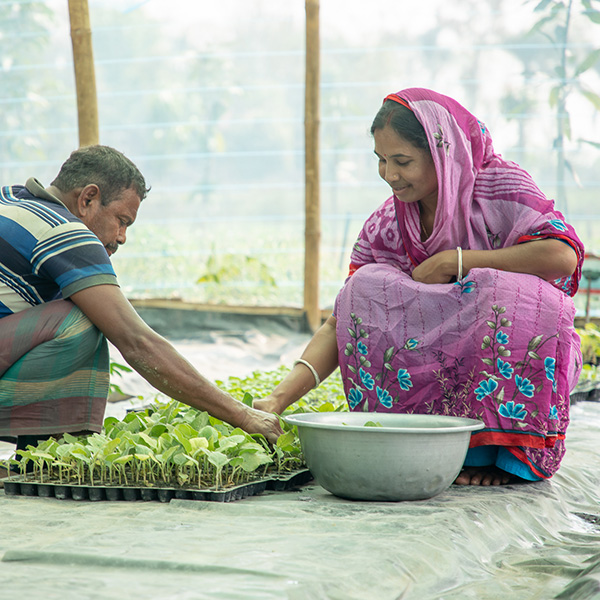In Bangladesh, the adoption of Bt eggplant has enabled thousands of smallholder farmers to reduce pesticide use, increase yields, and improve their livelihoods. These outcomes reflect years of science-based work responding to the needs of farmers and collaborating with local partners to develop and deliver improved varieties. Cornell University-led programs have played a central role in advancing this proven biotechnology, which supports farmer prosperity, protects human health, and helps safeguard the environment.




BUILDING RESILIENCE
Women Empowerment
The Women-led Nursery Enterprise Model is about more than just planting seeds; it’s about cultivating opportunities for women. The initiative directly partnered with women entrepreneurs in Bangladesh to provide the essential tools and resources needed for their agricultural businesses to thrive and generate income.
A Decade of Bt Eggplant in Bangladesh
In 2014, Bangladesh became the first nation in South Asia to embrace the commercial cultivation of genetically engineered food crops. Over the past decade, the journey of Bt eggplant in Bangladesh has been one of enhanced food security and economic opportunities for farmers.
Farmer Prosperity
Bt eggplant enhances farmer prosperity by resisting destructive pests, reducing reliance on chemical pesticides, and safeguarding farmer health and the environment. It increases yields, raises incomes by lowering input costs, and supports sustainable farming for long-term productivity and food security.
WHAT THEY'RE SAYING ABOUT BT EGGPLANT
Bt Eggplant by the numbers
A snapshot of our innovation ecosystem.




